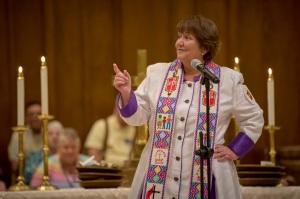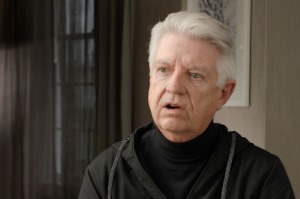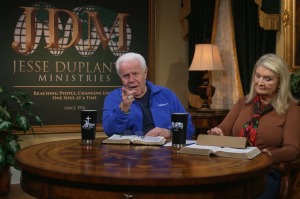Reaction to Exodus Shutdown From Christian, Gay Communities a Complicated Mix
Reaction to the shutdown this week of Exodus International, the largest Christian ministry devoted to addressing struggles with homosexuality, once primarily by way of reparative therapy and more recently with a shift towards a focus on church responsibility, has been a complicated mix of opinions from leaders from within both the church and gay communities.
"I'm not in agreement with shutting Exodus down," Joe Dallas, the founder and director of Genesis Counseling who served as president of Exodus International from 1991-1993, told Christian radio show host Janet Mefferd. "I would have rather seen the leadership of Exodus handed over to other leadership, but I did disagree with the direction Exodus has been going the past year or so, and for that reason, I guess, I would rather see it close than continue in that direction."
Dallas added, "It's been an organization that's been a help to the church, especially for the last 30-plus years. I was sad to see it close. It's certainly a loss to what I think was a very valuable ministry tool."
The ministry's current president, Alan Chambers, who made the announcement Wednesday, told The Christian Post yesterday that before the 37-year-old ministry publicly stated it would be closing, it underwent significant changes in the last few years. Most notably, perhaps, was its decision to stop promoting reparative therapy as a way to reduce or eliminate unwanted same-sex attraction. Many people felt the therapy did more harm than good, filling those seeking help with unrealistic expectations of change.
In addition to this week's shut-down announcement, Chambers apologized to the gay community for the pain Exodus' teachings and practices might have caused them in a letter on the ministry's website and on an episode of "Our America with Lisa Ling."
Chambers told CP the decision to close Exodus was very difficult, but the right one. Confirmation came when discussions with longtime ministry partners and associates said the organization had too much baggage.
"Even within groups of people in the church, large groups of people in the church, who agree with us on theology or our beliefs about sexual expression rooted in Scripture, which have not changed, what they said is, … 'We won't partner with you. We won't partner with a ministry that has so much negative attached to it,'" he explained. "And so we've had to look at that. It's not just our typical critics, but it's our friends who have said, 'It's time, and let's end this and move forward.' So we did."
Chambers said he can't apologize for his biblical beliefs that sex, sexuality, and sexual expression were created by God and His original intent was sexual expression between one man and one woman for one lifetime in the bonds of marriage.
"I realize that's not everyone's belief, and in fact it feels more and more like the majority of the world, that isn't their belief," he told CP. "So those things won't change, and I can't apologize for that. But I do believe so many of us who hold to those scriptural beliefs ... have wielded them as a sword so often. We've been involved in a culture war that really, literally, has claimed untold lives, and we've got to be more careful. God didn't bring us to planet Earth to wage a war."
He added that the Christian church is too often known for what it is against, and it's "time for the world to know what the church is for."
Russell D. Moore, president of the Ethics & Religious Liberty Commission, told the Baptist Press that the closing of Exodus International "doesn't mean the folding of an evangelical sexual ethic, though it does mean a move away from a therapeutic model of sexual sanctification."
Moore said, "Evangelical Christianity increasingly addresses sexual issues more in line with the older Christian tradition of sin and temptation and triumph than with the language of therapy. We can't have a utopian view of overcoming temptation of any sort."
Like Chambers' view that churches need to be more a part of the solution, Moore said Christians need more than a recovery group of people struggling with the similar temptations to overcome same-sex attraction.
"Increasingly churches are addressing persons with same-sex attractions the same way they address everyone else: in terms of the gospel and a lifelong call to take up one's cross and follow Christ," Moore told BP. "This means the Christian grappling with same-sex attractions needs to hear that the gospel addresses him or her, and that this person needs the whole body of Christ, in community, not just an accountability group of those who are defined by the same temptations."
R. Albert Mohler Jr., president of Southern Baptist Theological Seminary, told BP that a problem arose when Chambers suggested last year that people can continue in their homosexual behavior and still receive salvation. It became obvious that Chambers and Exodus International were "rethinking their understanding of a Christian approach to homosexuality," said Mohler, as reported by BP.
"Sadly, it appears that this rethinking has resulted in something like a surrender to the cultural currents of the day," he said.
Some ministries, similar to Exodus, agree more along the lines that Mohler has drawn.
"While some falsely proclaim that a transformed life is optional for Christians, the united witness of Jesus and the writers of Scripture are clear: In God's grace true saving faith results in a life of holiness and sexual purity," stated a newly formed group called Restored Hope Network on its website. "Thankfully God does not leave his people without a witness to the transforming power of Jesus Christ."
Frank Worthen, one of the founders of Exodus who began RHN last year, said, "I am so thankful that Restored Hope Network exists at this time to continue the message of transformation and new life in Christ."
However, a liberal-leaning group calling itself the Gay Christian Network, welcomed the closure of Exodus and felt relieved because it was something many wanted to hear "for a long, long time," according to its founder Justin Lee, whose statement was in an article from U.S. News & World Report.
GCN fully supports gay Christians in committed relationships as well as those who endorse celibacy, according to its website.
"As a Christian, I grew up believing groups like Exodus could make me straight," Lee stated. "We believe there's room in the church for a disagreement about the morality of gay sex. What we don't support is the idea that gay people can go through some program and come out straight."




























